How to help eating disorders and IBS style symptoms.
Eating disorders and IBS are something that can go hand in hand and makes recovery even more tricky. Perhaps you struggle with bloating after meals and abdominal pain. Or maybe you are finding it difficult to tolerate lactose, beans and pulses or certain vegetables, but know it is not good to cut foods out. Your bowels may alternate from diarrhea to constipation, there can be gurgling noises in your tummy and all of it makes it harder to eat. These symptoms can annoyingly be common in eating disorder recovery.
In this blog we are going to look at how disordered eating can impact your gut and look at some strategies to help.
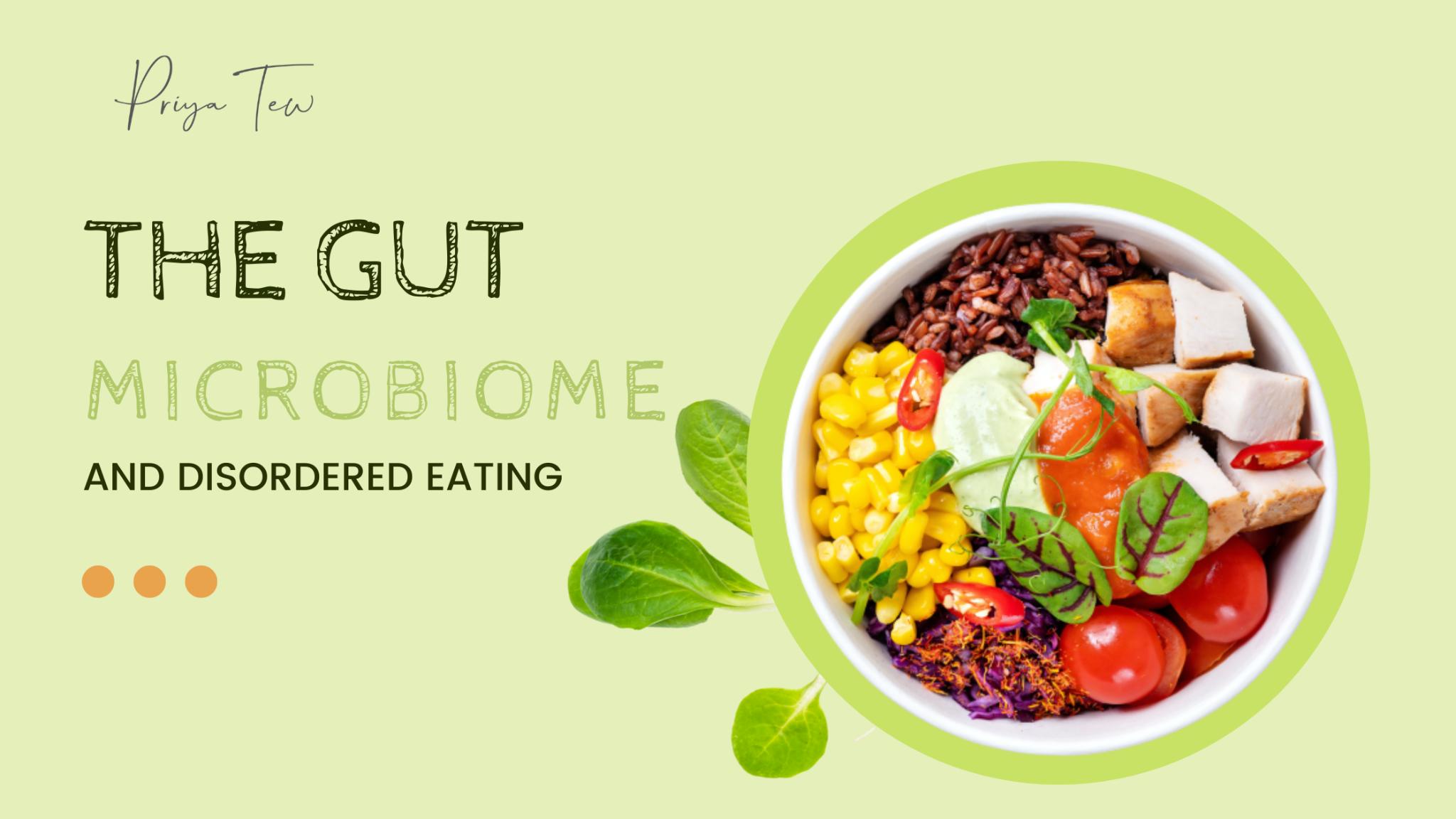
How eating Disorders can affect your gut health:
Eating disorders, disordered eating and any form of restrictive eating can really affect your gut health. Your gut has it’s own microbiome. This is it’s own world which is filled with trillions of microorganisms, like bacteria and tiny creatures. They’re not just hanging out; they’re doing crucial things like helping with digestion, making vitamins, and boosting our immune system. What we eat, how we exercise and sleep affects these microbes.
Restrictive Eating for instance, can result in an imbalance in the gut microbiome. This is due to us needing to firstly keep topping up the levels of beneficial bacteria and some of these come from our diet. Then we also need to feed those bacteria too, with the foods we eat. So by not eating enough and not having a diverse diet the balance of gut bacteria is affected. Not having enough food in your system can also affect your bowel motions, leading to a slower passage through the system. It makes sense doesn’t it, with less food to pass through, it will be harder work.
It’s not just restriction that can cause an impact. Binge eating can also affect the microbiome. If you suffer from episodes over overeating large amounts of food in a short time, this can affect your gut bacteria too. It can cause a rollercoaster effect, leading to symptoms such as bloating and reflux. Purging after eating (make yourself sick) or using laxatives can also affect your gut microbiome. It can disrupt the levels of those all important gut bacteria.
Dietary Factors that can affect Eating Disorders and IBS Symptoms
Lets think about the dietary factors that could affect your gut symptoms in recovery:
- Food Choices: For those with eating disorders, specific food choices can trigger certain behaviours or emotions. For example, someone with anorexia might avoid high-calorie foods, while someone with binge eating disorder might struggle with overeating certain types of foods. With IBS, certain foods like spicy foods, alcohol, caffeine, dairy, or high-fibre foods can aggravate symptoms like bloating, gas, and abdominal pain. This is where working with a specialist dietitian can be really helpful as they can help you tweak your food plan without over restriction of foods.
- Dietary Restrictions: People with eating disorders often have strict dietary restrictions, which can lead to nutrient deficiencies and exacerbate IBS symptoms. Whist the low FODMAP is sometimes recommended in IBS this is not something to follow if you have disordered eating or an eating disorder. A specialist dietitian will be able to help you make smaller changes one at a time instead.
- How You eat: Eating fast, not really chewing your food, skipping meals and being distracted when you eat can make your IBS symptoms worse. So during recovery focus on chewing well, having regular meals and snacks and eating in a mindful way can help.
- Helpful Aids: If you feel bloated and uncomfortable after eating try these: Foxes Glacier mints or a mint tea, a hot water bottle, some deep breathing and a calming activity, urge surfing.
Other Factors that impact Eating Disorders and IBS Symptoms:
Your mood and sleep:
Ever heard of serotonin? It’s a mood-regulating neurotransmitter that also impacts your sleep. Your gut microbiome is like a little serotonin factory. It is involved in the production of serotonin. Disruptions in the gut can mess with serotonin production, potentially influencing your eating habits and mental health.
Things that can help?
- Regular meals including enoough protein. Tryptophan is an amino acid that your body uses to make serotonin. Foods like turkey, chicken, eggs, cheese, nuts, seeds, tofu, and salmon are all good sources of tryptophan. Pairing these foods with carbohydrates can help increase tryptophan uptake in the brain.
- Sunlight exposure helps stimulate the production of serotonin. Aim to spend some time outdoors, especially in the morning, to soak up those rays. If you live in a place with limited sunlight, consider using a light therapy box.
- Practices like mindfulness meditation, deep breathing exercises, and progressive muscle relaxation can help reduce stress and promote relaxation, thus indirectly supporting serotonin production.
- Social connection and support from friends, family, or support groups can positively impact mood and serotonin levels. Surround yourself with positive influences and people who uplift you.
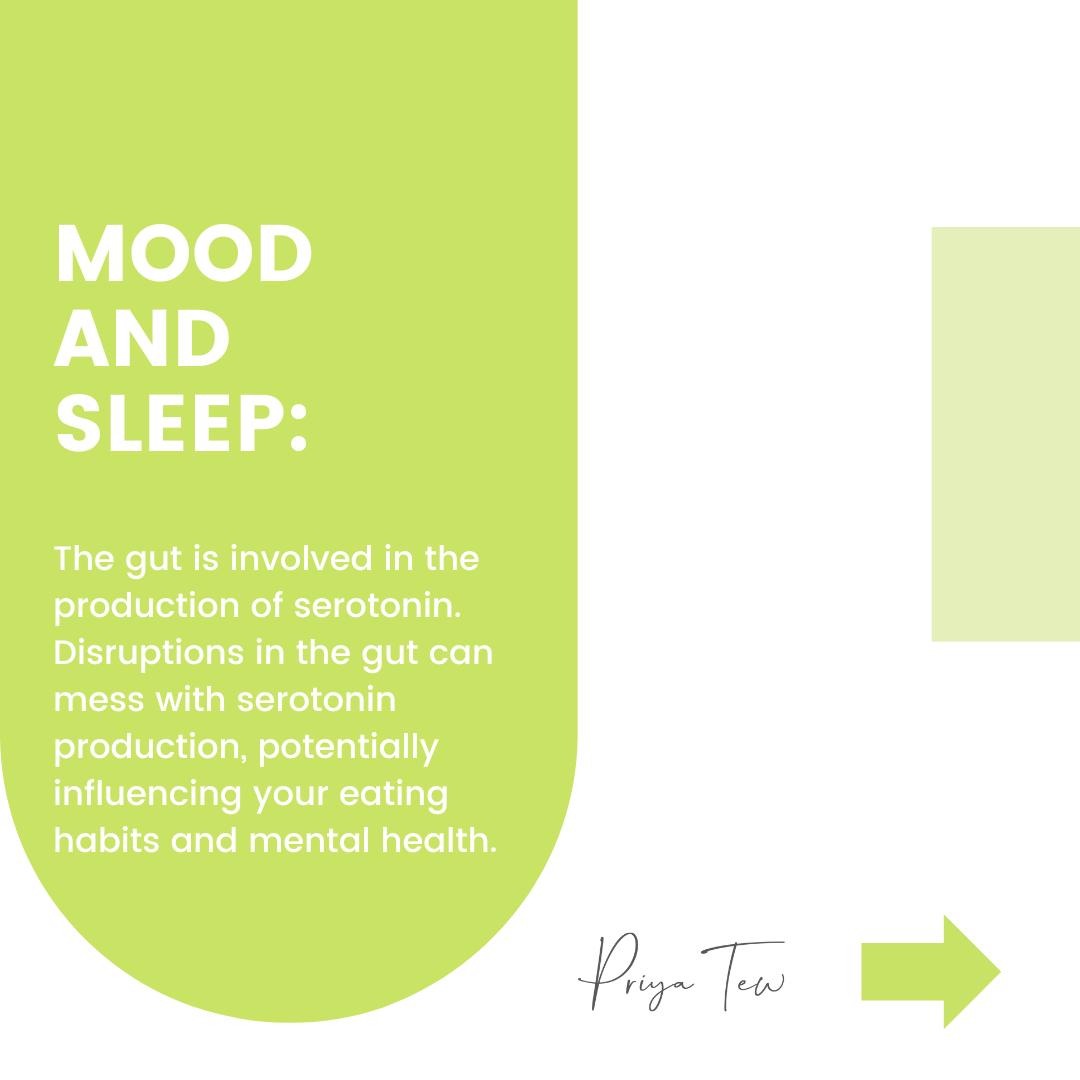
Stress and Anxiety:
Stress and anxiety can influence our stomachs too and this works both ways. Both eating disorders and IBS can be influenced by stress and anxiety. Stressful situations or emotions can trigger disordered eating behaviors, while stress can also exacerbate IBS symptoms.Being more stressed leads to a release of cortisol from your brain which is fed to the gut through the gut brain axis we mentioned earlier. This can affect digestion leading to poor absorption of nutrients. You may have looser stools or notice you lose weight in a long term period of stress. If your stomach is unwell and stressed then this also feeds to the brain and your brain becomes stressed too. You can see therefore how calming our nervous system can really help digestion.
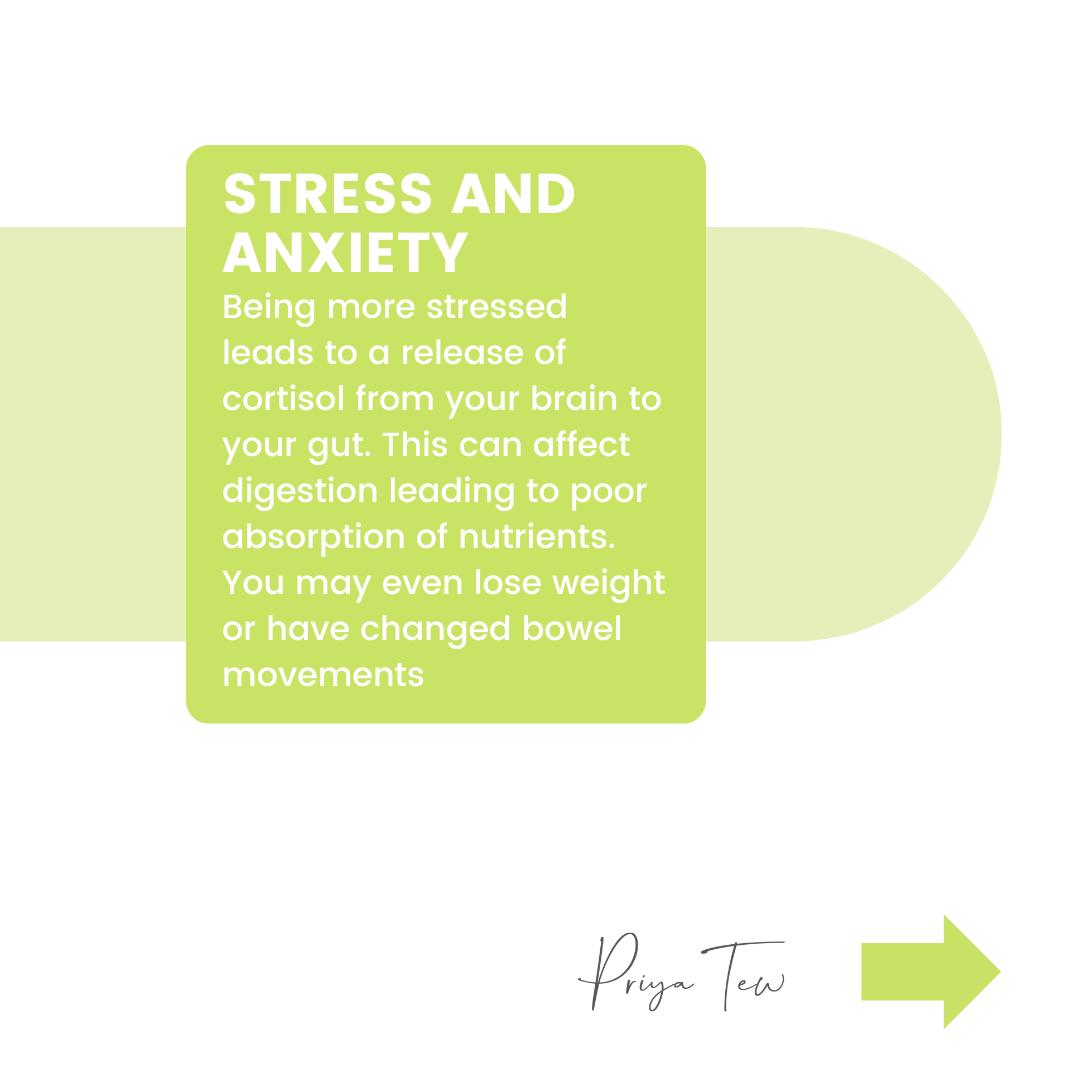
Nutrient absorption and energy regulation:
A healthy gut microbiome is crucial for you to be able to actually absorb and use the nutrients you eat. Having an upset gut microbiome can lead to nutritional deficiencies and imbalances that are not easy to measure.
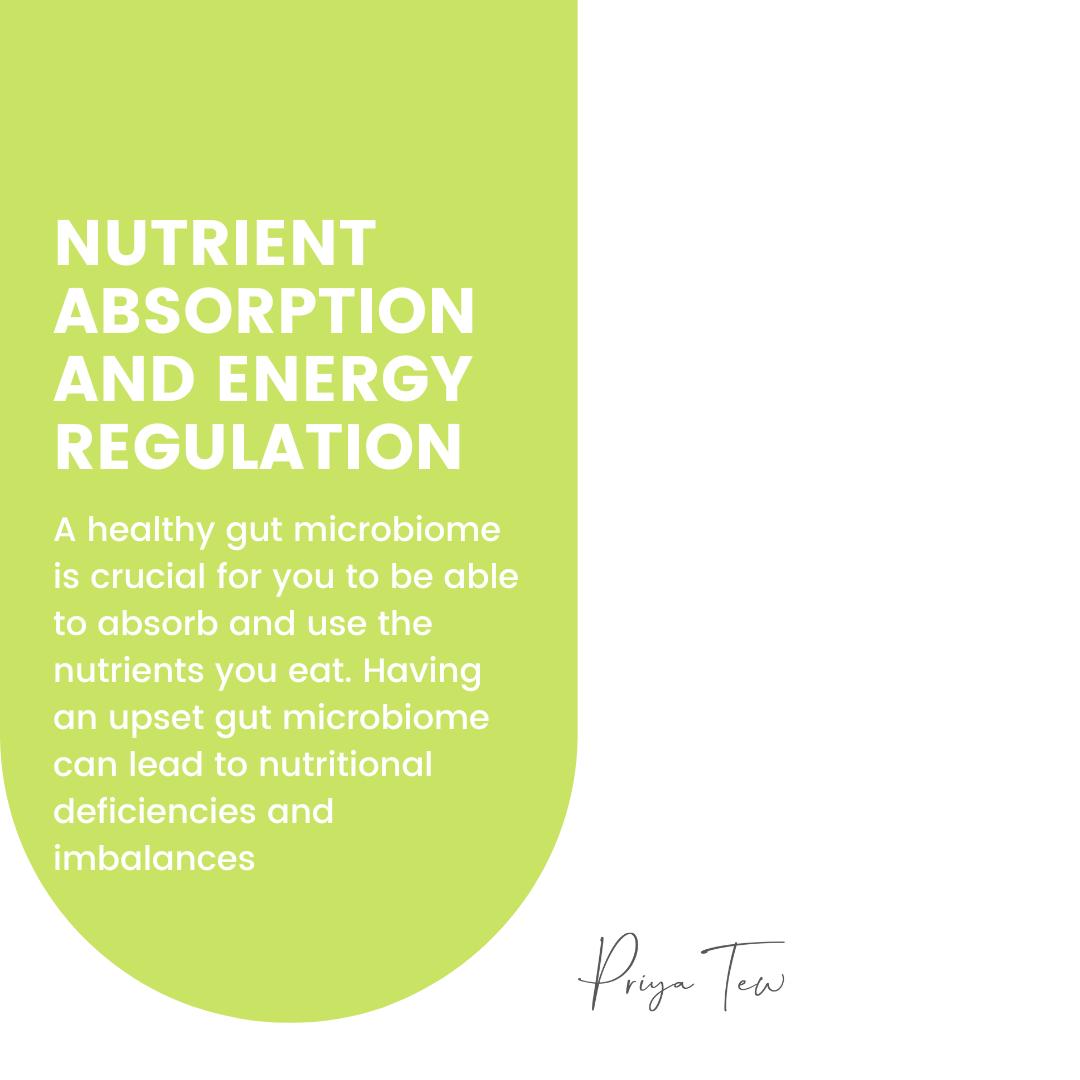
Keeping the Microbial Harmony:
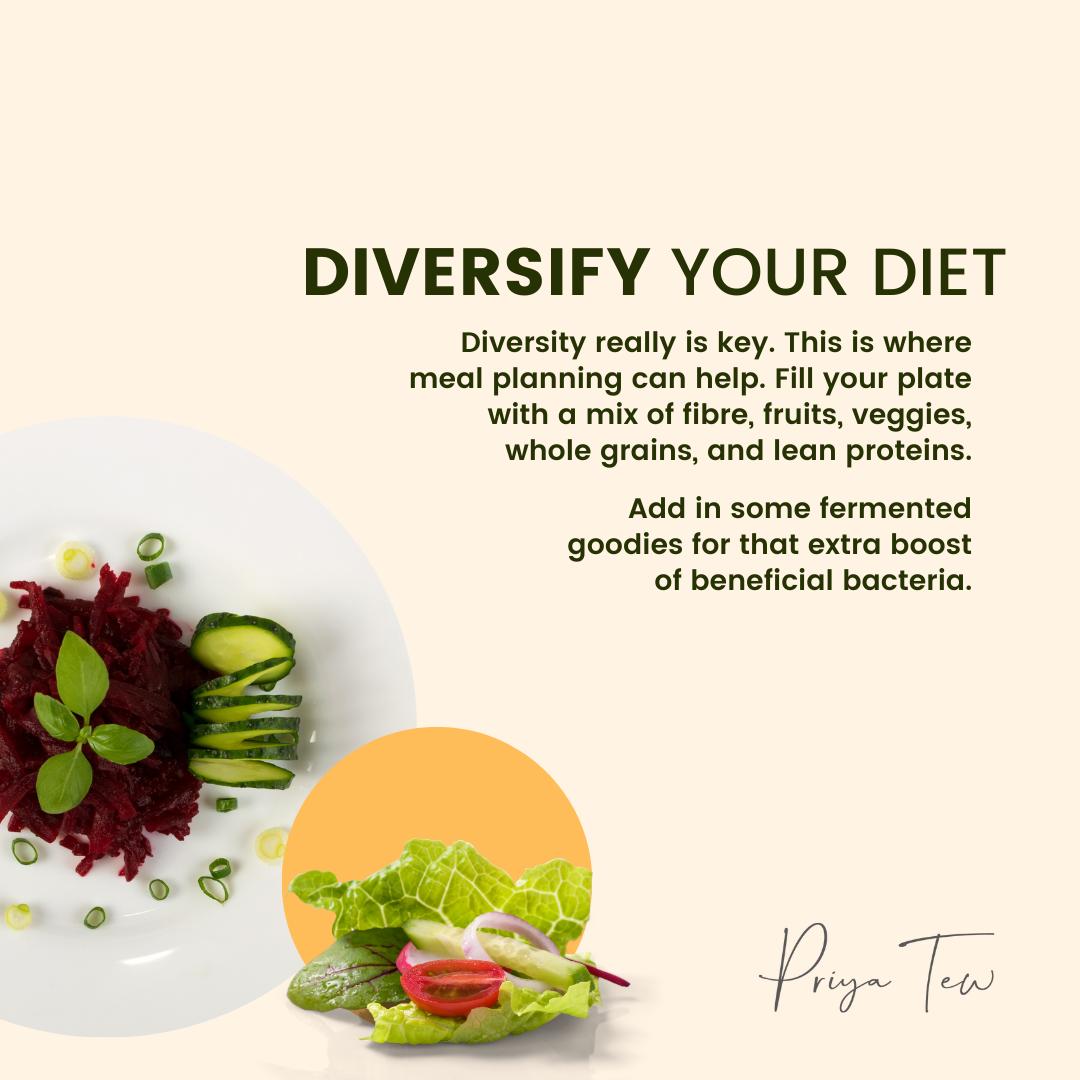
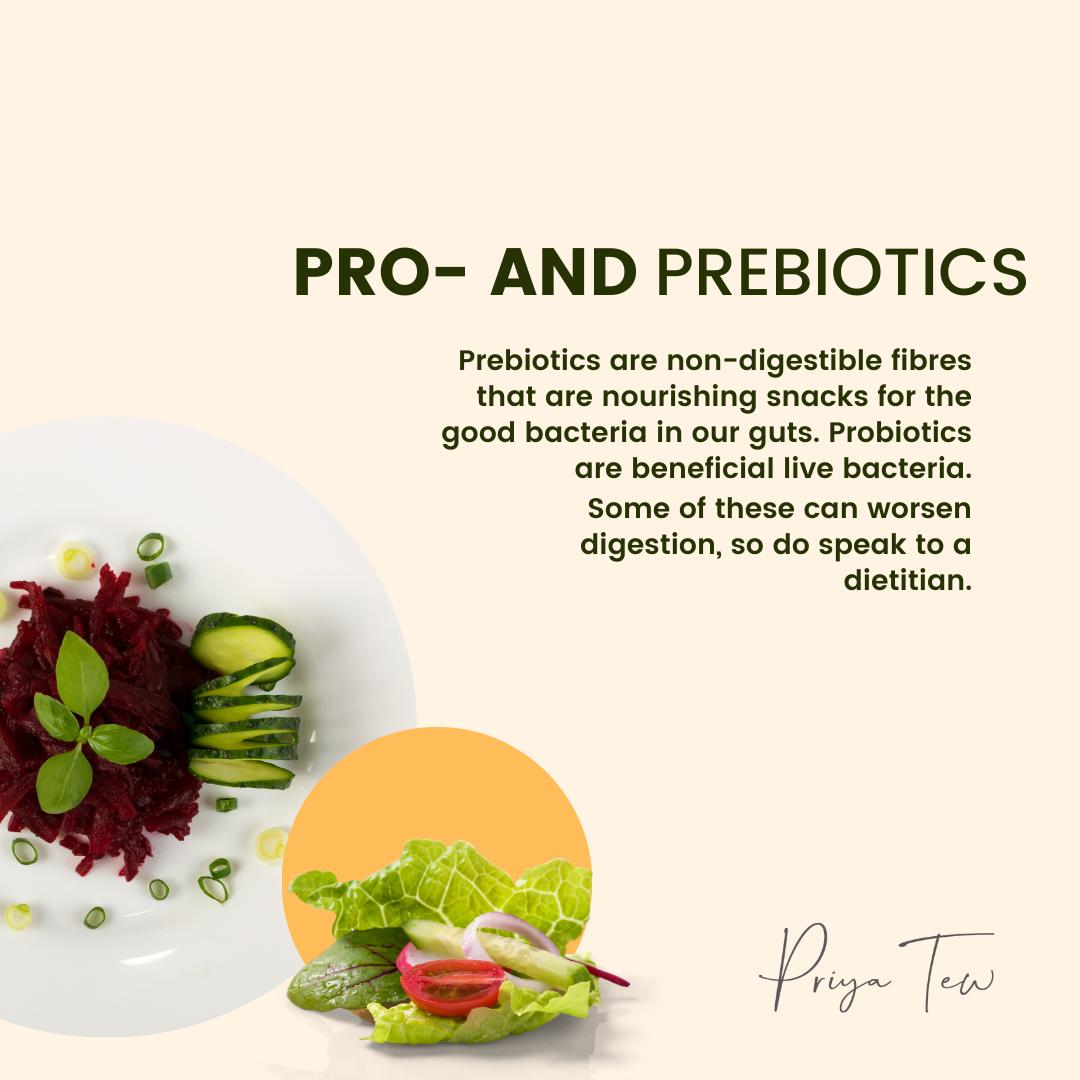
So, how do we keep our gut microbes happy and healthy during recovery? Here are some tasty tips:
- Diversify Your Diet: Eat a balanced diet full of variety. Diversity really is key. This is where meal planning across your week can work wonders. Fill your plate with a mix of fibre, fruits, veggies, whole grains, and lean proteins. Add in some fermented goodies like yoghurt, sauerkraut, and kimchi for that extra boost of beneficial bacteria.
- Pro & Prebiotics: Think of these as the superheroes of gut health. Prebiotics are non-digestible fibres that are nourishing snacks for the good bacteria in our guts. They are found in foods like garlic, apples and onions. Probiotics are live bacteria found in yoghurt or supplement. These are the actual good bacteria. But hey, not all pre and probiotics are the same and for some they can actually worsen gastrointestinal symptoms. Thats why it’s key to check with a dietitian to work out the ones you need at the right dosage.
- Chill Out, Stress Less: Chronic stress is not the friend for your gut microbes at all. Try meditation, deep breaths, or relaxing activities that bring zen vibes to keep stress in check. I love a bit of crochet and pilates myself.
- Team Up with a Pro: Enlist the help of a registered dietitian, especially one experienced in eating disorder recovery. They’re like your personal coaches, guiding you with a meal plan that supports your gut health and overall wellbeing.
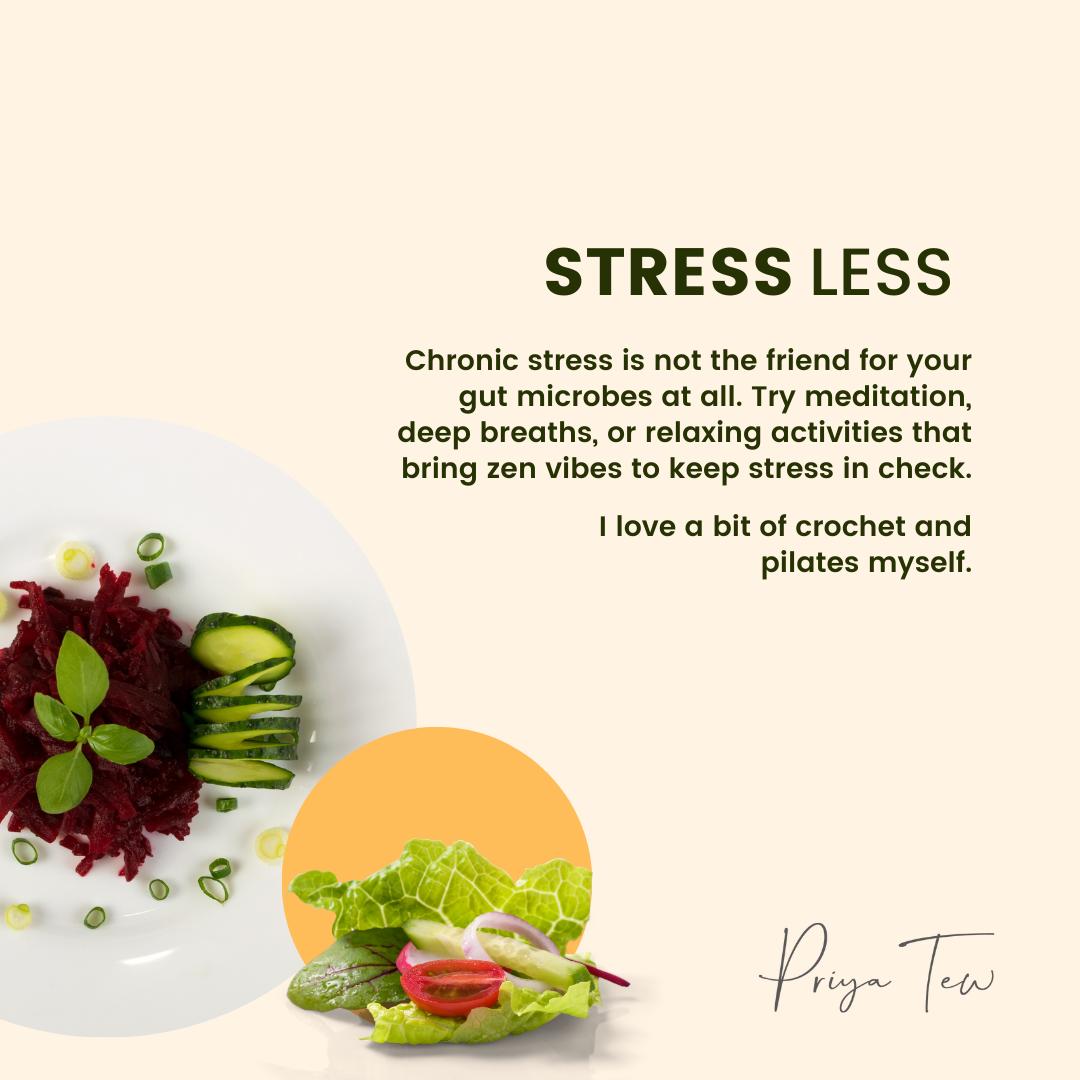

In a Nutshell:
Understanding how your gut and eating habits are connected is key to your holistic health journey. By nourishing your gut with a diverse diet, managing stress, you’re on your way to a happy gut and a more sustainable recovery. Remember, your journey is uniquely yours, so don’t hesitate to reach out to the Dietitian UK team for that personalised touch.